Series Introduction
Wander, Wonder, Write is a travel journal chronicling a homeschoolers’ adventure across east Asia—just me and my 13-year-old daughter, following curiosity wherever it leads. From Space-A flights to Korean street food, from duets on borrowed pianos to unexpected lessons in airports, this is more than a trip. It’s an unfolding story about presence, connection, and letting our children lead us into new territory. New reflections posted daily as we wander, learn, and grow—together.
If you know someone who might be interested in following along, please share!
Where The Journey Began
It started with K-Pop.
At first, I didn’t take it seriously. My daughter was geeking out over boy bands, and I assumed it was just a phase—something loud, shiny, and fleeting. We’re a French-speaking family, after all. We’d been teaching her French since she was a toddler, and now suddenly she was learning to read the Korean alphabet on her own? I rolled my eyes and chalked it up to pop culture overload.
Then one day, something shifted. We were picking up dry cleaning from a friend of mine, Mimi, when my daughter glanced at a Korean newspaper on the counter and casually asked, “This means hospitality, right?” Mimi’s eyebrows lifted. A short conversation followed—some greetings, a few simple phrases—and a few minutes later, my daughter handed her a scrap of paper. On the back of a receipt, in carefully written Hangul, she had composed a short introduction: “Hello, my name is Rebecca, I’m from America.” Mimi read it aloud, impressed. I just stood there, stunned.
That was the moment I realized: this wasn’t just a phase. This was a passion. And it was time I stopped resisting and started paying attention.
Since then, we’ve taken dad-daughter dates to Korean cultural festivals, movie nights at the South Korean embassy in Washington DC (where we live). We swapped Korean novels into our homeschool curriculum, and yes—my Spotify algorithm now belongs entirely to Asian boy bands. Somewhere along the way, I stopped tolerating K-Pop and started actually enjoying it.
Last year, I mentioned offhand that we could probably fly to South Korea someday on a Space-A military flight. She remembered. And this year, she called my bluff. So, with a two-week window of time, I took leave and we made the leap together.
Space-A: Our Adventure Awaits
Space-Available travel—Space-A, as we call it—is a military benefit that lets eligible folks hop aboard government aircraft when there’s extra room. It’s not commercial air travel. It’s not even a cousin of commercial air travel. It’s something else entirely—equal parts opportunity, gamble, and exercise in surrender. If there are seats left after mission-critical passengers and cargo have been accounted for, you might get on. You might not. That’s the game.
The downsides: there are no guarantees. No pre-scheduled routes you can count on. Flight schedules are posted just 72 hours in advance, so the best you can do is scan a three-day window and hope for the best. Flights get canceled without warning. Routes change. Aircraft break. Missions shift. Sometimes, entire passenger manifests disappear because someone, somewhere, decided passenger space was no longer available. You learn not to take it personally. You can get stranded for days at a layover—Norfolk, Turkey, Anchorage—or, if the universe really wants to humble you, Diego Garcia. I’ve heard stories of folks stuck there for a week, living off vending machine trail mix and reevaluating all their life choices. But that’s part of the charm, if you can call it that.
The upsides: you can fly around the world… for free.
Space-A isn’t about control. It’s about flexibility. For me, Space-A embodies the saying “the journey is more important than the destination.” I don’t get much say in the timing or the path—but I do get to decide how I respond to it. That can be either terrifying or liberating, depending on the day. Sometimes both
The Night Before
There’s a specific kind of quiet that comes the night before a journey—a stillness threaded with the rustle of checklists, last-minute laundry, and the low hum of anticipation. Bags are half-packed, then unpacked, then repacked again. I move through the house like I’m touching everything one last time, as if it might be a while before I see it again.
Tomorrow, if everything aligns—weather, timing, available seats—we’ll be airborne. Destination: San Francisco initially, with the goal of hitting Japan and Korea sometime over the next two weeks. I say “the goal,” because that’s the game with Space-A travel. It’s like catching a ride with fate.
After a full day of regular work and school with the kid, I collapsed on the couch, a steaming cup of coffee in hand, for a few moments of peace before tackling the last of the packing and planning for our trip. I watched the beginnings of the golden hour unfold through the south-facing bay windows. Gold and pink streaked the horizon, soft and blurred, filtered through the blossoms of Sweet Gum, Maple, and Hickory trees that stood in quiet communion at the edge of the forest behind my home.
This trip has been on the calendar for months, but it only recently began to feel real. There’s something about international travel with a teenager that turns ordinary parental anxiety into something sharper—an awareness not just of logistics, but of thresholds. My daughter is thirteen, old enough to carry her own suitcase but still young enough to need reassurance in unfamiliar situations, which are bound to happen with our chosen method of travel halfway around the world. In many ways, this trip is a gift to her. We have travelled together many times before, just the two of us, but this trip will definitely test our teamwork, and possibly our relationship.
Late afternoon sunlight spills across the hardwood floor of the living room, turning everything gold. Spirit, my service dog, lies curled at my feet, her body perfectly still except for the slow rhythm of her breathing. She will be coming with us as far as San Francisco, where she’ll spend the two weeks we’re gone with one of the trainers from the program. I know she’ll be well cared for, but it’s hard to imagine being without her. She’s more than just a working dog—she’s a presence, a steady breath in my often tangled world.
One of our orange cats leaps into my lap without ceremony and wedges himself between my arms as I type. His weight settles over my hands, warm and pulsing with purrs, as if to say: You’ve done enough for now.
This trip isn’t just about travel. It isn’t just about bonding with my daughter or checking off another life experience. It’s something more vulnerable than that. I ask myself several tough questions as I roll my socks and underwear as tightly as possible, trying to pack two weeks’ worth of clothes into the smallest bag I can carry.
Can I really handle this? Will I rise to the occasion, or will I get tired and irritable and start snapping about trivial things? Will she regret going along with this idea—regret trusting me to lead her across the world on a shoestring itinerary and a lot of faith? What if I mess this up? What if I ruin the fragile, beautiful connection we’ve been building these past few months? What if I am not the man I hope I am? What if she sees that too clearly?
With those thoughts swirling around my head, I rise from the couch and begin again the preparation for the trip. The packing. The planning. The coordinating. It all feels endless.
In the other room, the piano begins to sing.
At first, it’s scales. My daughter always starts with scales. Then comes a melody, halting and unsure at first, then smoother as her fingers remember the shape of it. I smile, listening. She’s been practicing more lately, without prompting. I am hoping we’ll find an opportunity to play or sing together on this trip.
My daughter has always been a bit shy about sharing her gifts. She plays beautifully—has a feel for phrasing that can’t be taught—but she keeps it close, like something sacred. I’ve always been a little different. Let’s just say I’ve never been one to let a quiet moment stay quiet if there’s a piano nearby. Airports, restaurants, hotel lobbies—I frequently appoint myself as entertainer in all of them. I call it lifting the mood. That’s the polite version. A more honest one might be: I like to show off. What can I say? Like most artists, I crave attention. I don’t know whether I developed talents to earn that attention, or if the craving came because I had talents worth noticing. Chicken or egg. All I know is, if there’s a piano in the room, I’ll probably end up at it—and more often than not, I get a smile and a thank you instead of a request to leave.
My daughter, however, is in a stage of life where she often prefers the safety of the background. Her early teen shyness sometimes contrasts with my exuberant personality and willingness (eagerness?) to be center stage. I often wonder if I am a good influence for her in this respect. I think about this more than I should. Maybe because I see so much of her in me. Most of the time, that brings joy. She’s creative, thoughtful, empathetic—brilliant in ways I’m still learning to understand. But I can’t help but notice the shadows, too. The same warring tendencies that drove me to many unhealthy extremes—vicious cycles of chasing attention, depending on others for self-worth, becoming so desperate for love that I was willing to do anything to get it. Drifting further and further from myself until I barely recognized that person anymore.
I desperately want to teach my daughter how not to be me.
More than anything, I want to teach her not to hide. Not to shrink herself to fit someone else’s comfort. Not to doubt the worth of her voice, her mind, her music. I want her to see her gifts as sacred—not because they elevate her above others, but because they can offer something to the world. A moment of connection. A thread of beauty. A spark of light in some tired, heavy place. I want her to know that sharing our talents isn’t the same as showing off. That real generosity of spirit doesn’t need to apologize for shining. Our gifts are not ornaments. They are offerings.
Am I demonstrating that today? Which father will I be on this trip?
I stopped typing. I decided to put those thoughts to rest. I had done enough shadow work for the day, and my bags weren’t going to pack themselves. The cat stirred in protest as I gently shifted him from my lap. As I rose and walked into the next room, I finished organizing my clothes into rows, fitting them into packing cubes. I listened to her play and sing while checking off items as they were tossed into my bag. Anxiety had come and gone for me all day, and I could feel it rising again as I struggled to remember all the various items needed for a two-week trip around the world.
What if we got sick and couldn’t get medicine? I should pack more. What if we got stuck in the rain? We needed waterproof jackets. What if…
I closed my eyes, took a deep breath, and listened to the music of my daughter’s practicing. I stood, leaned against the doorway, and watched her play. She glanced up and smiled.
“I wish I could bring the piano,” she said.
“We’ll find one,” I told her, without hesitation.
She rolled her eyes. “You always say that.”
“And I always do,” I said, raising an eyebrow.
She gave me a skeptical look, the kind only a teenager can deliver. “Yeah, but you also play it. In public. Like, make a scene.”
“I make music,” I corrected, placing a hand on my chest with mock offense. “And making a scene is part of the charm.”
She tried to hold her deadpan expression but failed. A small smile tugged at the corner of her mouth. “You’re kind of ridiculous, you know that?”
“That’s okay,” I said, sitting down beside her. “We’ll be ridiculous together!”
That got a laugh. But there was something else in her face then—something quieter, gentler. I couldn’t quite place it at the time. Admiration, maybe? Or a tiny shift, like a door cracking open.
Without a word, she shifted to a new key—one of our old duets. We began to sing together.
Her voice joined mine. She was still unsure on the harmony, but she was learning. We made our way through the song, together, without perfection but with joy.
The bags could get packed later. I had more important things to do right then.
It was time to be present.
It is always time to be present.
About the Author
ES Vorm is a Navy uniformed scientist who writes about presence, parenting, recovery, and the messy middle of becoming. A recovering perfectionist with a tendency to overthink everything, he now prefers slow mornings, real conversations, and stories that don’t wrap up too neatly. He believes in travel as transformation, grace as survival, and the healing power of a well-timed cup of coffee.





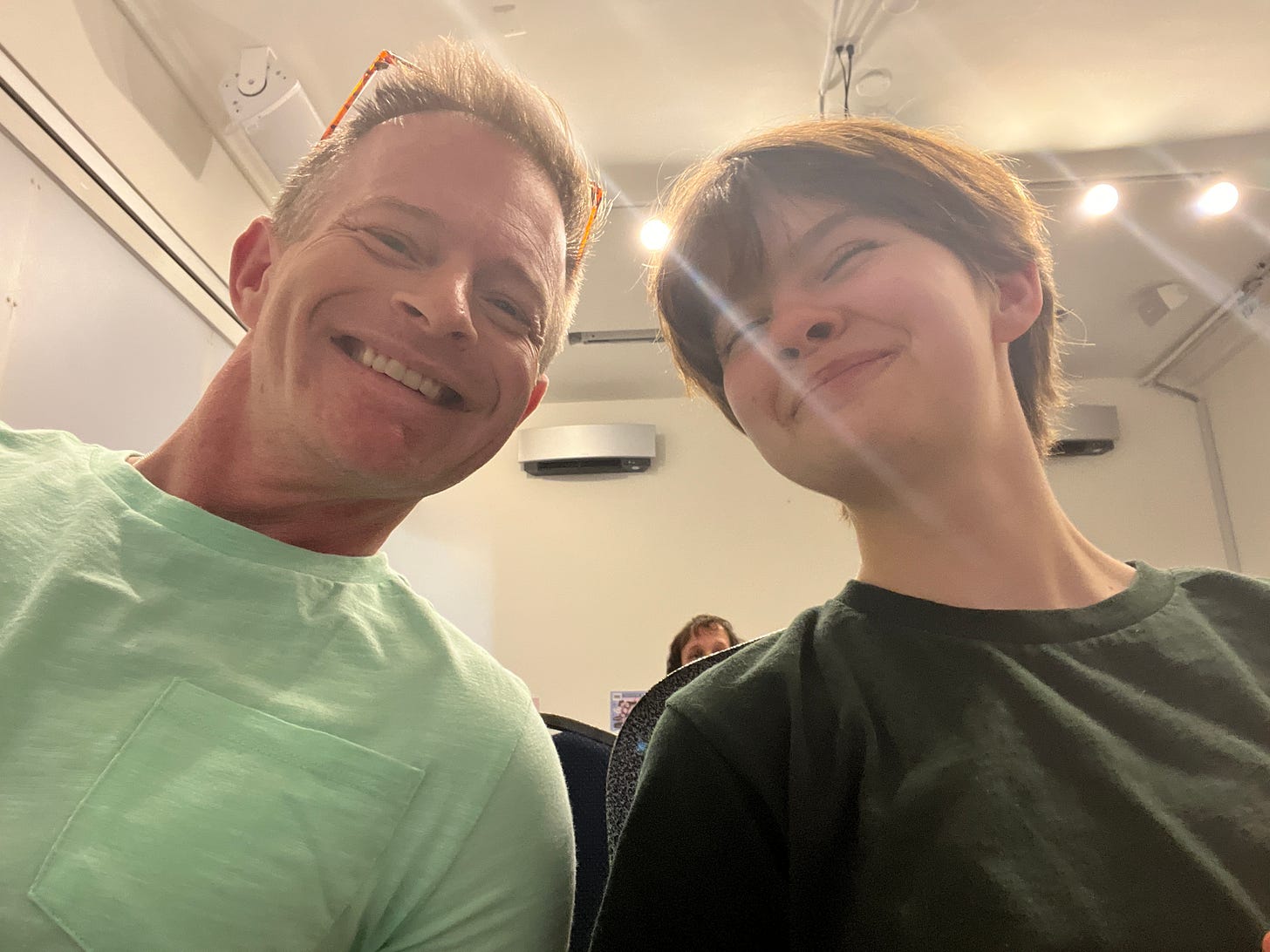
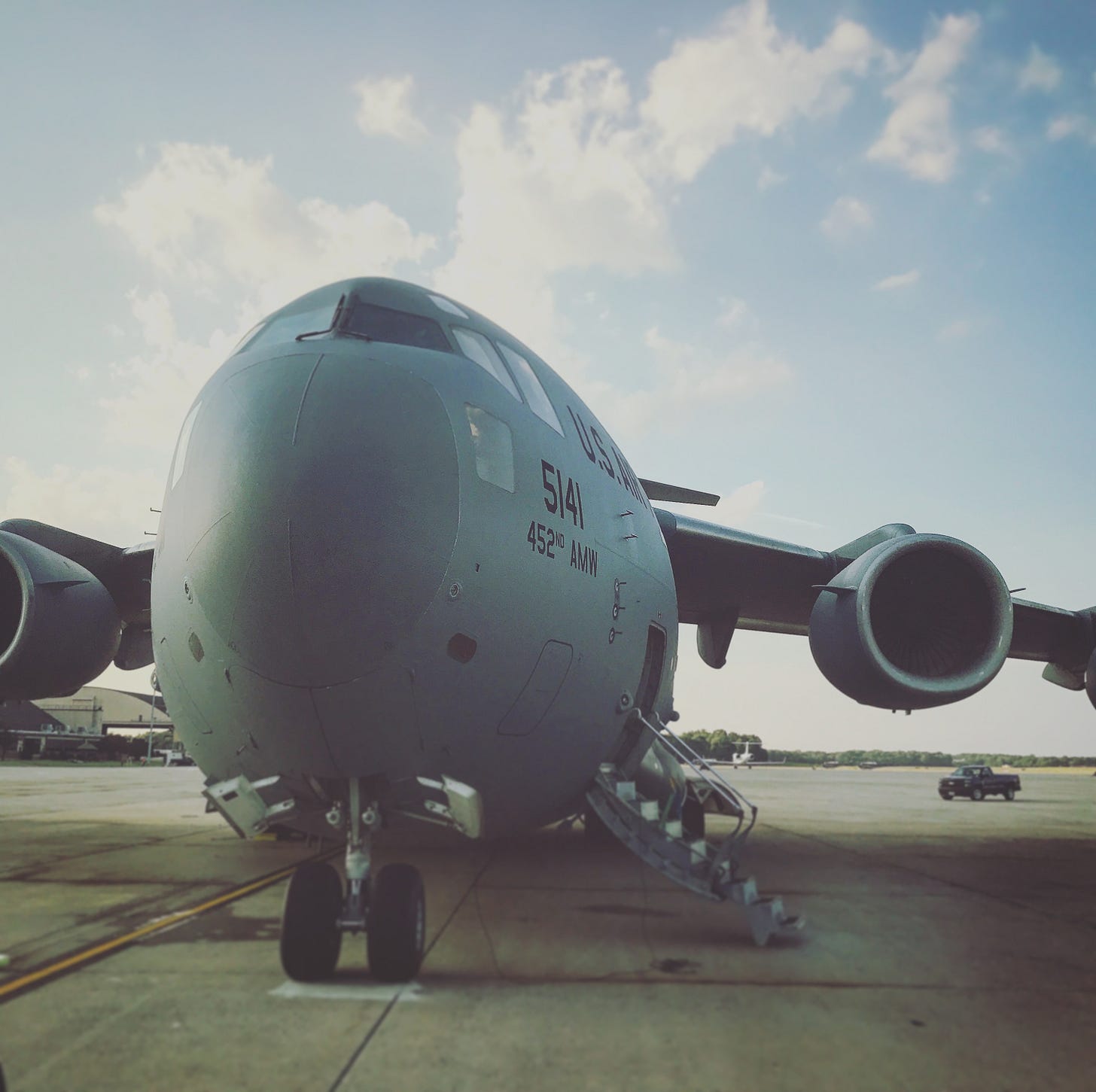
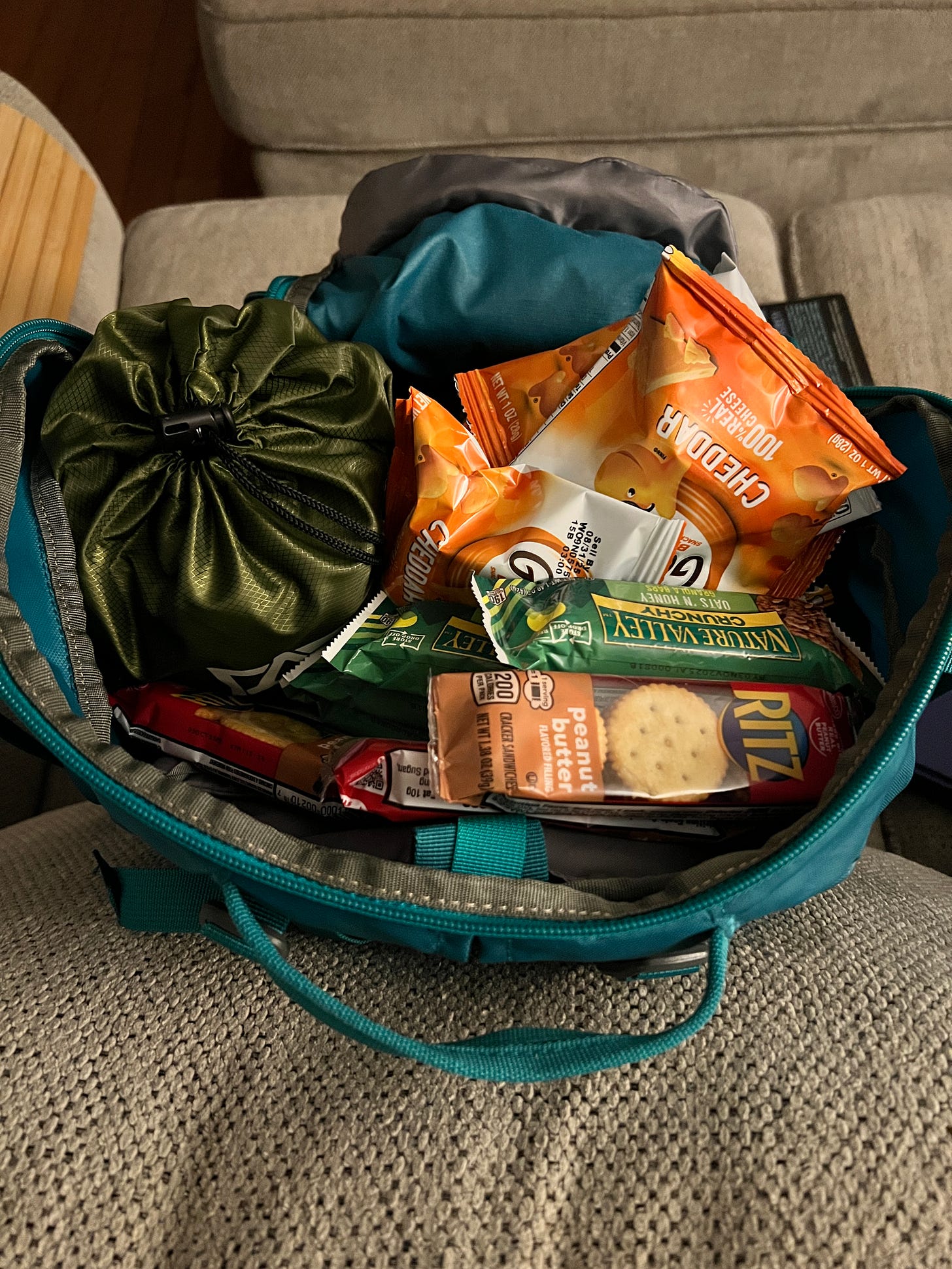
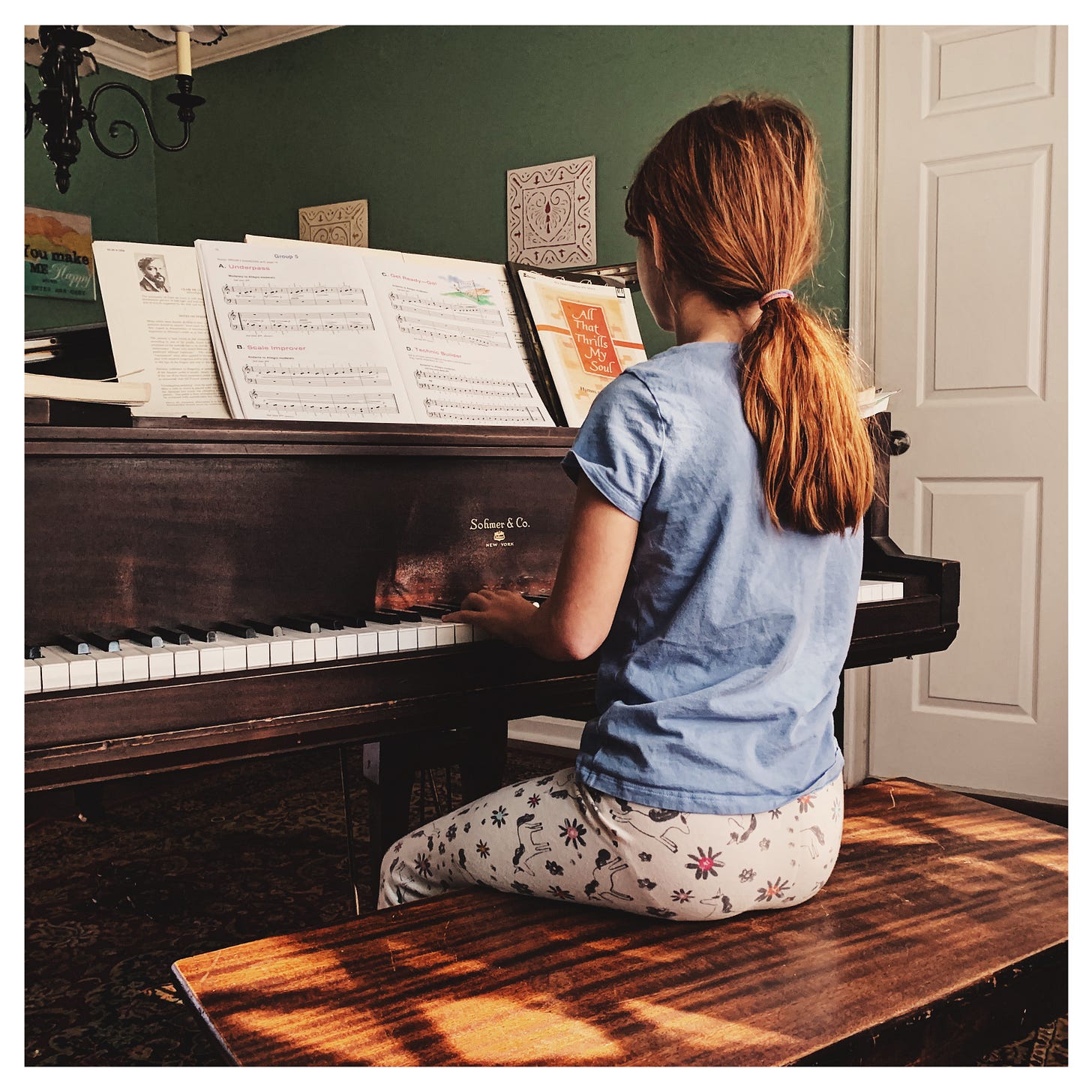
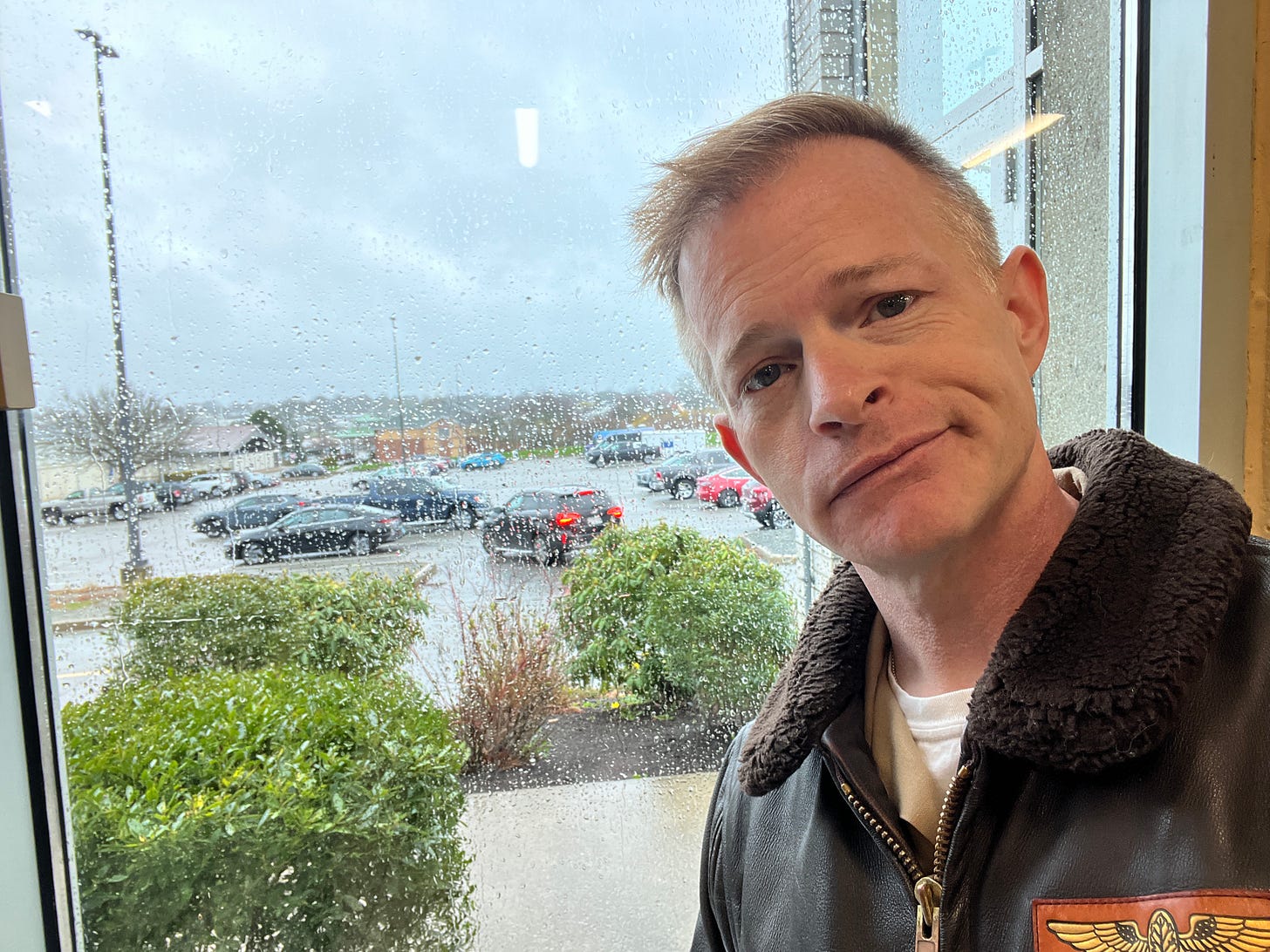
“I desperately want to teach my daughter how not to be me.”
Hits closer than our 1-point archery match…if I give my kids anything, I don’t want them to be the version of me that I can’t stand.
This is a wonderful story.